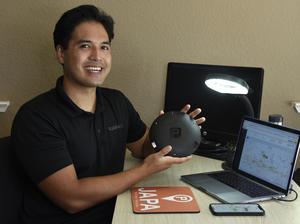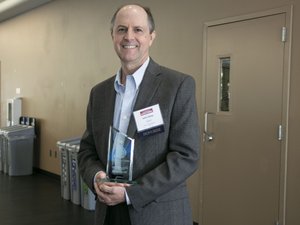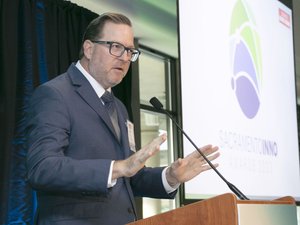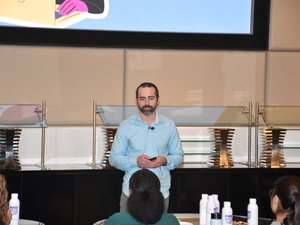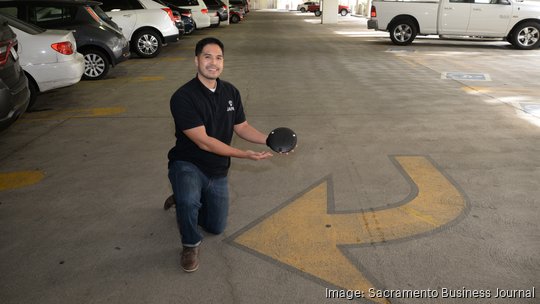
West Sacramento parking technology company Japa Inc. has two new engagements in high-profile locations in San Francisco.
The company recently deployed its smart parking technology and data platform to two areas of San Francisco with seriously challenging parking congestion.
The new San Francisco customers want data and informatics on parking usage and they want more ease of use for customers, CEO Mathew Magno told the Business Journal.
The company got contracted to put its sensors on two large surface lots in the Castro neighborhood near the Castro Theatre by a transit agency, and it also installed its sensors to count and track incoming and outgoing traffic into three garage structures near Chase Center in the Mission Bay neighborhood. Chase Center is the home of the Golden State Warriors.
Japa started installing its parking intelligence hardware and software commercially in 2019. Its first big gig was installing 2,000 of its parking sensors across the Bay at the University of California Berkeley.
Japa’s parking intelligence hardware is a durable, battery-powered wireless sensor. It's coupled with software that can communicate a dashboard of information so operators can see in real time what is happening with their spaces, and that information can also be distributed via screens and apps to public users. And all that information can be tracked over time.
For the San Francisco surface lots, Japa’s sensors are on every space, and they allow the local transit agency to monitor use, vacancies and also to monitor the use and occupancy of Americans with Disability Act parking spaces. That agency has many other lots, so there could be further use in the future, Magno said.
The Japa sensors at the three indoor garages track traffic in and out so that the platform can inform drivers via external digital signs — and on apps — when the garage is full and when it has vacancies. The operator of those three garages also has multiple other garages in the same area around the medical campuses of Mission Bay.
The company has installed about 10,000 of its sensors to date. Those sensors have monitored 6.6 million parking events. Japa installed 4,000 of those sensors just last year.
Japa's sensors can be deployed on a large scale to isolate individual open spaces, and they can be used in limited quantities at entrance and exit points to count cars to monitor whether open spaces are available.
The car counting is what Japa has done for years at SoFi Stadium in Los Angeles. Just a handful of sensors at the entrances and exits monitor the 6,000 parking spaces at the stadium. That is also what Japa sensors do at the Mission Bay garages.
Monitoring every single space, like in the San Francisco surface parking lots in the Castro, is what Japa does for customers including the campus of University of California Davis; UC Davis Medical Center in Sacramento; UC Berkeley; University of California Santa Barbara; California State Polytechnic University Pomona; and other schools.
The devices, software and apps efficiently let drivers know if there are any spaces available before entering a lot, which also makes the existing spaces' use more efficient, Magno said. “The product is helping our customers solve problems.”
The company is in contract talks with airports and universities on the East Coast and Midwest, Magno said.
Last year, Magno told the Business Journal the company had revenue of $1.3 million in 2022. He declined to share Japa's more recent revenue.
Japa has won first-place prizes at both the UC Davis Big Bang! Business Competition and the Sacramento Kings Capitalize contest.
